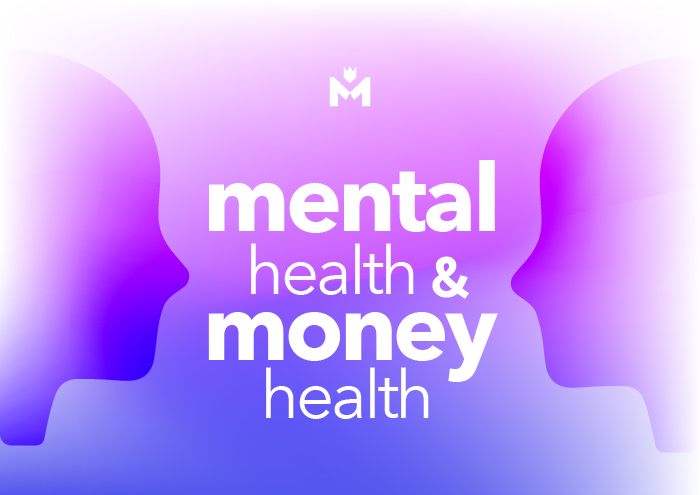There have been a few studies lately floating about that discuss the wealth gap and the issues that this is having on our mental health. We know that there is a strong connection between money and mental health; it literally makes the world go round! In New Zealand, mental health wasn’t discussed with as much weighting as it does post-COVID, which is crazy considering our mental health stats in the land of the long white cloud.
Many Kiwis are struggling with the emotional and economic toll of this pandemic. While we have done comparatively well at managing the risk and spread of Coronavirus, the impacts are far-reaching and widespread. We’ve seen it in our clients, we see it with our friends, and we have felt it ourselves.
So what is the latest?
Mental Health and Money Health from COVID-19
New articles from The Spinoff and NZHerald have pointed out some startling and pretty crazy stats about how the economy is recovering and how this impacts us. As we stated in our housing policy blog post and our buying vs. renting post, we noted inequality and the divide between the wealthy and the not-so-wealthy is growing. We can see people struggling to raise deposits in an ever-growing market, or seek to take the next financial step, whatever that means.
According to New Zealand Google’s top searches of 2020, #8 was Work and Income New Zealand. From a study presented by the CCFC focusing on the Impact of COVID-19 on Financial Wellbeing, there were a series of key points that stood out as quite a shock. 40% of households surveyed had at least one member receiving the Wage Subsidy. There is low confidence and knowledge in the financial space were leading to decisions driven by panic and fear. People took out extra loans to cover up for additional debt. Free financial guidance was both under-utilised and not pushed out to the people that needed it the most. Only 23% of households in New Zealand appeared to be financially secure during and after COVID-19. These households showed no signs of financial difficulty and could manage by living off their off savings if there was an issue to arise in the future.
This means the rest of Aotearoa was at risk or potentially at risk if exposed, or were already experiencing financial difficulty. That’s a scary number, and it’s scary being a Kiwi in that position. We can see that mental health and money health are very closely linked.
Basics of Letters in Economics
If you’re an economics buff, scroll until the next headline. If you’re not, keep on reading.
Economists use different shapes to describe how an economy is progressing:
- L shape: Economy crashes badly, and stays bad.
- U shape: Economy crashes badly, stays flat for a little while, and then rebounds back up.
- W shape: Economy crashes, bounces back a little bit, and then declines, before bouncing back up.
- V shape: Economy crashes quickly and bounces back quickly.
- K shape: Economy for some people is going well, and for others is going downhill.
In New Zealand, it looks like we’ve got a strong K-shape economy. This basically means that for the wealthy or the people who have had a ‘leg up’, you’re in a better off position. Even talking about age gaps in the K-Shape, the younger generations will be paying off the Covid-19 debt for their lives in tax. If you have owned a home during this time, you will see your value grow in the home of 10% or more. Even if the rent had a reduced rate during the lockdowns, the rents have gone up to cover increased bills, meaning tenants are paying more. Often these tenants won’t have had an increase in income, so the additional $X that someone would pay on top can be difficult to juggle.
People in New Zealand were already exposed to financial difficulties and issues, but the difference is now that Covid has strengthened and intensified the issues. However, while our economy hasn’t completely hit a low place, we are still working through the inequalities. Money health and mental health would be very relevant in places like our beautiful land in Aotearoa, we have a big ‘keeping up with the Joneses’ attitude, and our heads in the sand.
So what do we do?
Kiwi’s head in the sand approach and mentality when it comes to taboo topics, and unfortunately, money is one of them. This leads to people feeling defeated before they’ve even started, or asking our advisers straight away, “How does it look?”.
We find that there are so many ways to begin the solution, and a lot of it starts with the mindset shift. It’s only in the last decade that the banks have stopped being the gatekeepers to financial information and records. People are turning to specialist financial advisers who can help to guide them, giving people the tips and tricks needed to change their life. You can also start asking or reaching out for help, digging deep and having a diligent look at yourself and your lifestyle. Putting a plan in place that’s longer than your 3-month goal, or even 1-year goal, can make you feel engaged with your future and your plans. It’s about building that long-term wealth so you can be safe from future issues, risks, or financial difficulties. We will always recommend taking a step back and look at your goals.
The next part is having an honest conversation about financial literacy and financial capability in New Zealand. We know that financial literacy is limited with Kiwis, and it is up to those in the know to remove these barriers.
Overcoming that initial fear and feeling brave enough to step forward is often the toughest thing, but it is the most rewarding. Get in touch with us for a judgement-free and price-free initial consult, and let’s get the ball rolling.




